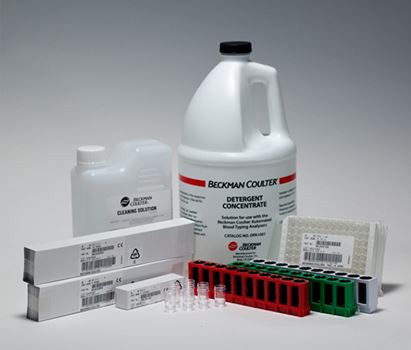The Beckman Coulter PK7300 System Blood Grouping Reagents and Phenotyping Reagents are intended for the determination of blood ABO group and Rh type and Kell phenotypes in blood donors using the Beckman Coulter PK7300 System.
The Anti-A, Anti-B and Anti-A,B reagents are used in the red blood cell determination of the ABO blood group. They are used to determine the absence or presence of erythrocytic antigens A and/or B on the surface of human red blood cells.
The Anti-D reagents: Anti-D, Anti-D (PK1) and Anti-D (PK2) are used to determine the Rh type. They are used to detect the presence of the D (Rh) antigen on the surface of human red blood cells. The Anti-C, Anti-E, Anti-c, Anti-e and Anti-K are used for Rh-Kell phenotyping of human red blood cells. These reagents detect the presence of antigens C,E,c,e and K on the surface of red blood cells.
The Beckman Coulter Control is devoid of human activity and should be used in parallel testing with the Beckman Coulter PK System Blood Grouping and Phenotyping reagents to differentiate between specific and non-specific agglutination.
 English
English







